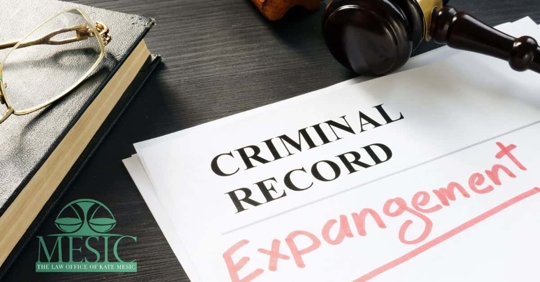A criminal record can follow you for life — affecting your ability to get a job, rent an apartment, or pass a background check. Fortunately, Florida law allows some people to seal or expunge their criminal records. However, these remedies are not automatic, and in some situations, you still must disclose your record — even after it’s sealed or expunged.
At our firm, we help clients across Florida navigate this complex process and regain control of their future.
What’s the Difference Between Sealing and Expungement?
- Sealing a record means the public cannot access it, but certain government entities still can.
✅ Governed by § 943.059, Fla. Stat. - Expungement (or expunction) means the record is physically destroyed by the clerk
✅ Governed by § 943.0585, Fla. Stat.
In both cases, once your record is sealed or expunged, you can generally lawfully deny or fail to acknowledge the criminal history covered by the order.
When You Must Still Disclose a Sealed or Expunged Record
Under Florida law, even after sealing or expunging, disclosure is still required in certain situations.
Both § 943.0585(4)(a) and § 943.059(4)(a) list specific exceptions.
You MUST disclose your record when applying for:
- Employment with a criminal justice agency
- Example: Police departments, sheriff’s offices, FDLE
- Admission to The Florida Bar
- Even if your record is sealed or expunged, you must disclose it on your Bar application.
- Employment with a state agency dealing with children, the elderly, or disabled persons
- Includes DCF, DOH, Department of Elder Affairs, and school boards
- A concealed carry permit
- Employment with the Department of Education, a private school, or any charter school
- Applying to be a licensed professional in healthcare, education, or law
- Many state boards (e.g., nursing, medicine, psychology) require disclosure
Real-World Examples
Example 1:
You were arrested for petit theft and received a withhold of adjudication. You later seal your record.
➡️ If you apply for a job at a retail store, you may deny the record.
➡️ If you apply for a job with a school district, you must disclose the sealed record.
Example 2:
You expunge a battery charge that was dropped.
➡️ If you apply for a concealed carry license, you must disclose the expunged charge under § 943.0585(4)(a)(5), Fla. Stat.
Example 3:
You apply to the Florida Bar after expunging a marijuana possession case.
➡️ You must disclose it, and failure to do so can result in denial of admission.
Key Takeaways
- Most people can deny a sealed or expunged record, but not always.
- Government employers and licensing agencies may still see your record and require disclosure.
- Sealing/expunging a record doesn't guarantee a clean slate in all situations.
Why You Need a Lawyer for Sealing or Expungement
The application process is detailed and time-sensitive, and mistakes can cause delays or denials.
A Florida expungement attorney can:
✅ Determine if your charge qualifies✅ Handle all filings and paperwork
✅ Respond to FDLE or State Attorney issues
✅ Help you understand your disclosure obligations

